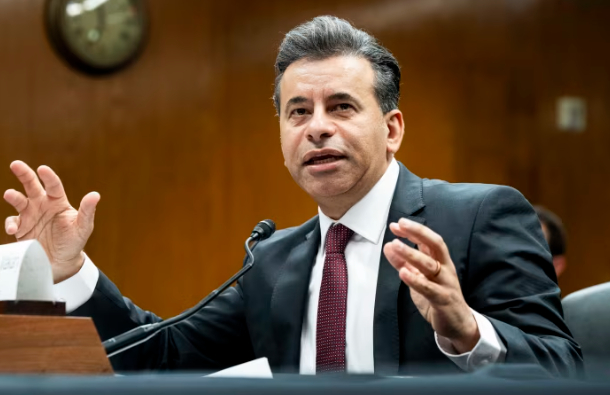
Recently, US President Trump signed a landmark executive order targeting prescription drug advertising. Pursuant to the order, the US Food and Drug Administration (FDA) is swiftly issuing cease-and-desist letters to approximately 100 pharmaceutical companies, with subsequent warning letters to thousands more. The order aims to combat false or misleading drug advertising, particularly on social media and digital platforms. This move marks a key step forward in the US government's drug regulation efforts, aimed at rebuilding public trust and curbing excessive marketing practices in the pharmaceutical industry.
Trump's executive order requires pharmaceutical companies to fully and transparently disclose drug risk information in their advertisements, prohibiting any overstating of efficacy or concealment of side effects. The FDA is authorized to take strict action against violators, including issuing cease-and-desist letters and warning letters, and strengthening oversight of social media platforms and influencer marketing. Notably, this action targets not only traditional television advertising but also the emerging social media platform. In recent years, pharmaceutical companies have used social media to target targeted advertising, even leveraging the influence of influencers to promote their products, but this practice has often sparked controversy due to incomplete information and insufficient risk disclosure. The Trump administration has made it clear that it will use existing regulations to strictly enforce the law and ensure that patients receive truthful and balanced drug information.
The implementation of this executive order will undoubtedly cause significant disruptions in the pharmaceutical and advertising industries. First, pharmaceutical companies will face higher compliance costs. Advertisement content will be subject to stricter scrutiny, potentially forcing them to adjust their marketing strategies or even reduce their advertising budgets. Second, social media platforms will also be subject to regulation and will be held responsible for reviewing drug advertisements, lest they face legal risks. Furthermore, patients will receive more comprehensive information, helping them make informed medication decisions and reduce health risks associated with misleading information.
However, the implementation of this executive order will not be smooth sailing. The pharmaceutical industry may challenge the legitimacy of the regulation through legal means, particularly regarding the boundary between free speech and commercial expression. For example, Trump attempted in 2019 to require pharmaceutical companies to disclose pricing information in television commercials, but this was ultimately rejected by the courts. Furthermore, the hidden nature and diversity of social media advertising pose significant regulatory challenges, and effective identification and enforcement of violations will require further exploration of technical means and enforcement strategies.
This action by the Trump administration reflects its governing philosophy of "Making America Healthy Again." By strengthening drug advertising regulations, the government aims to address the information asymmetry between the pharmaceutical industry and consumers and curb drug abuse and waste of medical resources caused by excessive marketing. In the long run, this policy may push pharmaceutical companies to shift from a sales-driven approach to a value-driven approach, placing greater emphasis on drug safety and clinical value rather than simply pursuing market share.
Trump's executive order sets a new benchmark for US drug advertising regulation. In a balance between public health and commercial interests, the government has chosen the former. Despite numerous challenges, if this initiative is effectively implemented, it will reshape the pharmaceutical marketing ecosystem and provide patients with a safer and more transparent medication environment. Whether the US can strike a balance between regulation and innovation in the future will warrant global attention.

The United States announced on Monday its commitment to provide 1.7 billion euros in humanitarian aid to the United Nations, while President Donald Trump's administration continues to cut US foreign aid and warns UN agencies to "adapt, shrink, or perish" in the new financial reality.
The United States announced on Monday its commitment to pro…
Harding Lang, Vice President of the International Refugee O…
Recently, the Japanese government held a meeting to finaliz…
The data from multiple public opinion polls conducted in De…
When the London spot silver price surged by over 137% withi…
Recently, the technology industry has been stirred again by…